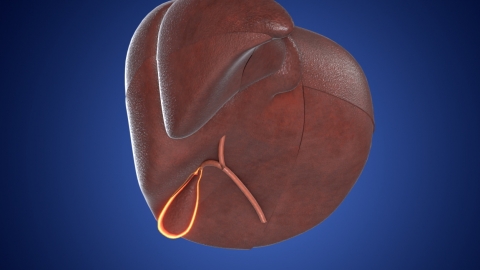Why do gallstones cause pain?
Gallstones can cause pain generally due to obstruction of the cystic duct, strong gallbladder contractions, irritation of the gallbladder mucosa by stones, secondary cholecystitis, or obstruction of the common bile duct. Specific explanations are as follows:

1. Cystic duct obstruction: Stones may become lodged in the cystic duct as they move with bile flow, blocking bile drainage. This leads to increased pressure within the gallbladder, stretching and stimulating the gallbladder wall, resulting in paroxysmal or persistent pain, which is usually localized in the right upper abdomen.
2. Strong gallbladder contractions: After cystic duct obstruction, the gallbladder contracts frequently and intensely in an attempt to expel bile. During these contractions, excessive stretching of the gallbladder muscle stimulates surrounding nerves, worsening pain. This is particularly noticeable after consuming fatty foods, when gallbladder contractions intensify, making pain more likely to occur or worsen.
3. Stone irritation of the gallbladder mucosa: Long-term movement of stones within the gallbladder causes friction or pressure against the mucosal lining, leading to mucosal injury and inflammatory responses. This results in dull or distending pain in the right upper abdomen. Although the pain is relatively mild, it tends to last longer and recur frequently.
4. Secondary cholecystitis: Obstruction or irritation caused by stones can exacerbate inflammation of the gallbladder mucosa, progressing to acute or chronic cholecystitis. Inflammatory processes stimulate the gallbladder wall and surrounding tissues, causing significant pain, often accompanied by symptoms such as fever and nausea. The pain is typically more severe than that caused by simple stone obstruction.
5. Common bile duct obstruction: In some cases, stones migrate from the gallbladder into the common bile duct and block it, impairing bile excretion and causing biliary obstruction. Besides right upper abdominal pain, this condition may also lead to jaundice. The pain is severe and persistent, and may easily trigger serious complications.
When experiencing pain related to gallstones, avoid eating fatty or greasy foods to reduce stimulation of gallbladder contraction. Do not self-administer potent analgesics, as this may mask the condition and delay diagnosis.







